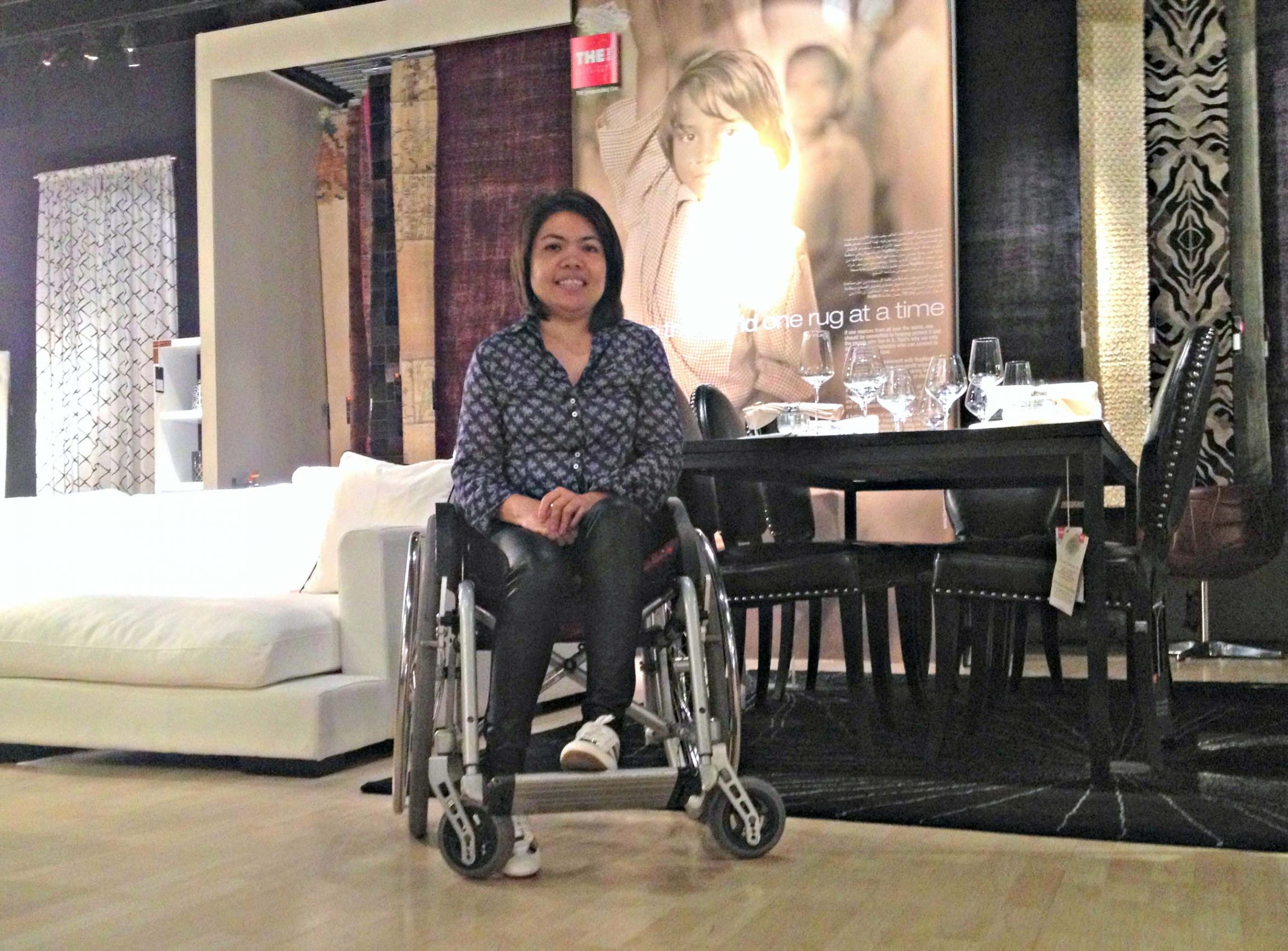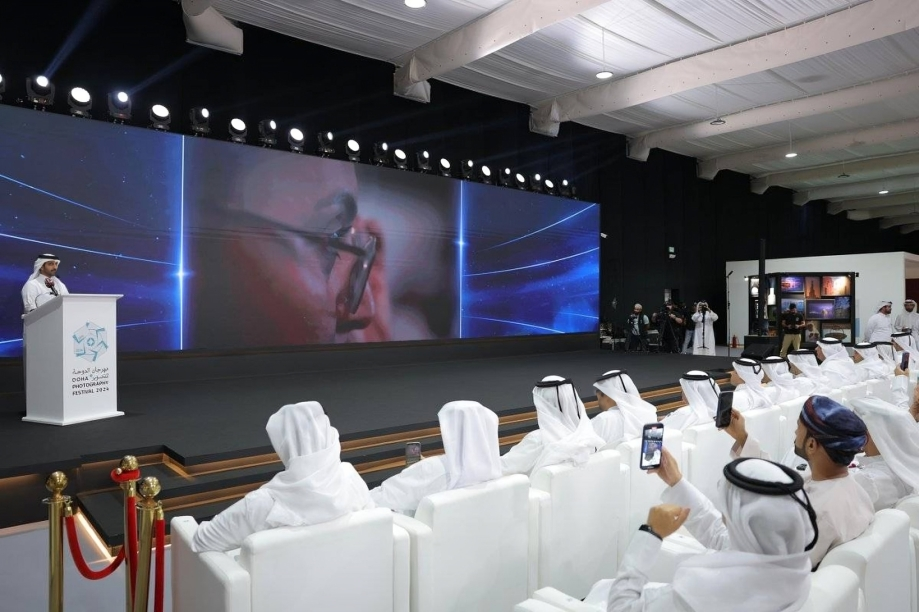
Nearly eight years ago, Vivian Trixie Penpillo’s life changed forever when she was involved in a serious car accident in Qatar that left her nearly paralyzed.
The Filipina expat underwent a grueling 11 months of rehabilitation at Rumailah hospital.
But when her treatment was complete, she could not be immediately released. Fearing for her mobility, the hospital said she needed a wheelchair first – a QR12,000 expense that she could not afford.

With her former job no longer available, Penpillo was running out of options. But news of her plight had been spreading through the grapevine.
When general manager of local furnishings store The One Qatar, Gaby Salome, heard about Penpillo’s trouble, he asked his staff if they would step in to help her.
Each employee gave up one day’s salary to raise enough money to buy a wheelchair, and Salome then offered Penpillo a job as a receptionist.
She has been working at The One ever since. Recalling that difficult time in her life, the now 40-year-old told Doha News:
After the accident, I became very shy and had lost all my confidence. When the job was first offered to me, I was overwhelmed that they thought I could do the job as well as anyone else, despite my disability. I actually turned it down at first, until my physiotherapist persuaded me to take it.
My colleagues here have been very supportive. They made some alterations to my workplace for my wheelchair, but otherwise they treat me like everyone else.”
Penpillo and a colleague who also has special needs – pastry chef Franklin Galano Corpuz, who is deaf – recently shared their stories with Doha News to encourage others with disabilities who want to work in Qatar but are too shy to apply.
Similarly, The One stores in Qatar, which are seeking to recruit more special needs workers to join their teams, hope that leading by example will inspire other businesses here to be less discriminatory and hire more people with physical challenges.
Tackling prejudice
Since she started work, Penpillo said that the job has given her back her confidence and self-esteem, and she wanted other disabled people to have the courage to try to get back in the workplace.
She also said she hopes to try to challenge some people’s attitudes and prejudices about special needs:
“It’s a good chance to be an example to others disabled people, and also to the customers – we might be disabled but we can do the job as well as an able-bodied person,” she added.
Corpuz, 42, had been a pastry chef for a hotel in Philippines when he sought to move to Qatar and found a job at The One’s restaurant in Landmark Mall.

However, his journey to Qatar was not straightforward. An immigration clerk initially refused to allow him to leave the Philippines, as he couldn’t speak and thus couldn’t explain the reason for his trip.
It was only after his wife, who is also hearing-impaired, appealed to the bureau of immigration that Corpuz was finally allowed to travel to Qatar.
When he first started in The One kitchen, none of his fellow chefs could use sign language and communication was tricky.
Now, nearly four years later, the team can converse with their own special version of signing and operate “like family,” Corpuz told Doha News in an email.
In a message to other physically challenged people seeking work, he urged: “Never be scared, face the challenge, take the risk and go for it.”
Inclusive policy
The One appears to be among a handful of firms in Qatar that actively seek to hire disabled staff, even though inclusive employment policies have been enshrined in law for more than 10 years.
Article 5 of Law No. 2 of 2004 states that all private sector organizations employing more than 25 people should have at least one person on its workforce with special needs.

But few companies actually comply with this regulation, particularly in sectors like retail, which involve face-to-face interaction with the public.
The One’s Salome has worked with several organizations in Qatar, including the Shafallah Center, Rumailah rehabilitation center and Al Noor Institute for the Blind, providing work placements and training for those interested in retail.
However, he said that in some cases, excellent workers he offered jobs to have been prevented from joining the company by their families. Salome explained:
“I think they were afraid of their challenged relative working in a public setting, and they felt shame. But I see working in retail as a great opportunity – you have the chance to change society’s mindset and try to get rid of the stigma that exists around this issue.”
Salome said all candidates’ applications are considered based on their individual skills. After speaking to their families or teachers to get their approval, the firm then interviews each applicant.
“I don’t have defined roles in mind – I would rather see the person and their strengths, then see how we could best use them in the business. They could be a cashier, or a receptionist, or back-up staff,” he added.
The successful ones are placed in a buddy system with existing employees, who act as their mentors and help with daily tasks until they feel confident enough to do the job on their own.
Describing the changes Penpillo and Corpuz have undergone since working with him, Salome said: “When they came to us, they were shy and had no confidence. Now they are proud, and I am proud of them.”
Anyone with special needs interested in working at The One can apply in person at one of the stores in Lagoona, Landmark or Villaggio malls, or email [email protected].
Thoughts?







